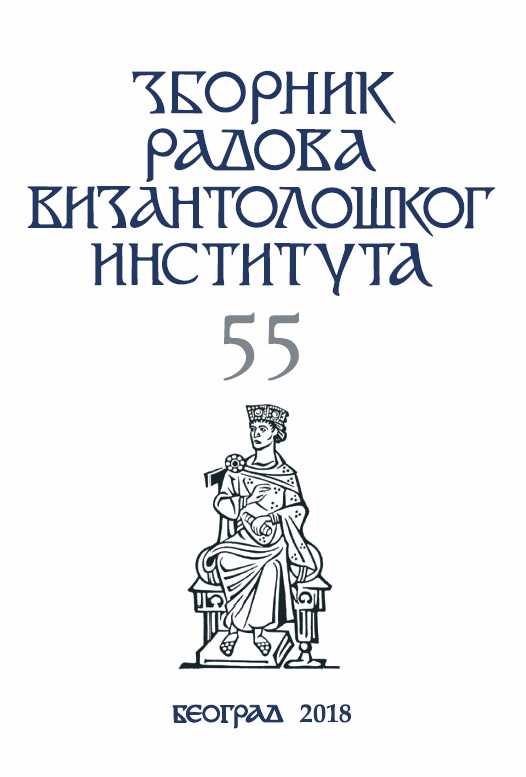The Dispute Between Theophylact, the Archbishop of Ohrid, and the Paroikos Lazarus: an Example of “State Interventionism” During Byzantine Emperor Alexios I Komnenos’s Reign (1081–1118)
The Dispute Between Theophylact, the Archbishop of Ohrid, and the Paroikos Lazarus: an Example of “State Interventionism” During Byzantine Emperor Alexios I Komnenos’s Reign (1081–1118)
Author(s): Toni FiliposkiSubject(s): Economic history, Social history, 6th to 12th Centuries
Published by: Vizantološki institut SANU
Keywords: Theophylact; Lazarus; Ohrid; tax officials; Archbishopric; paroikos; village
Summary/Abstract: Alexios I Komnenos, one of the greatest Byzantine emperors, was forced to carry out military and fiscal reforms. As a result, state taxes were notably raised; the powers of tax officials (praktors) were enhanced; and cases of confiscating Church land and other real estate appeared. These general tendencies during Alexios I’s reign are fully confirmed by the data laid out in several letters that Theophylact, the Archbishop of Ohrid, wrote. We learn from them, among other things, that a paroikos (peasant) named Lazarus launched a dispute before the emperor himself, accusing the archbishop of setting fire to his property and then of expelling him from the village. Theophylact was also accused of generating excessive income and possessing a costly estate, as well as of usurping a village near Ohrid. Over the course of the long-standing legal case, by sending letters to influential state officials, he tried to diminish and rebut the accusations. In his defence, he pointed out that attempts were being made to spread hostility against him both among the residents of Ohrid and across Macedonia. Also, he complained that state taxes were raised enormously. Although at a first glance it appears unusual that an archbishop should become entangled in a serious and prolonged dispute with a paroikos, the situation becomes clearer on learning that Lazarus’s grudge was in fact spurred and fully taken advantage of by the state’s tax officials. Through the case of Lazarus, who was used as their mouthpiece, they, in fact, undermined the ownership and immunity rights and privileges of the Archbishopric. All of that worked in favour of raising the income of the state at the expense of that of the Church. In other words, it appears that through the said dispute some sort of “interventionism” in favour of the state and at the Church’s expense was at work.
Journal: Зборник радова Византолошког института
- Issue Year: 2018
- Issue No: 55
- Page Range: 97-106
- Page Count: 10
- Language: English

